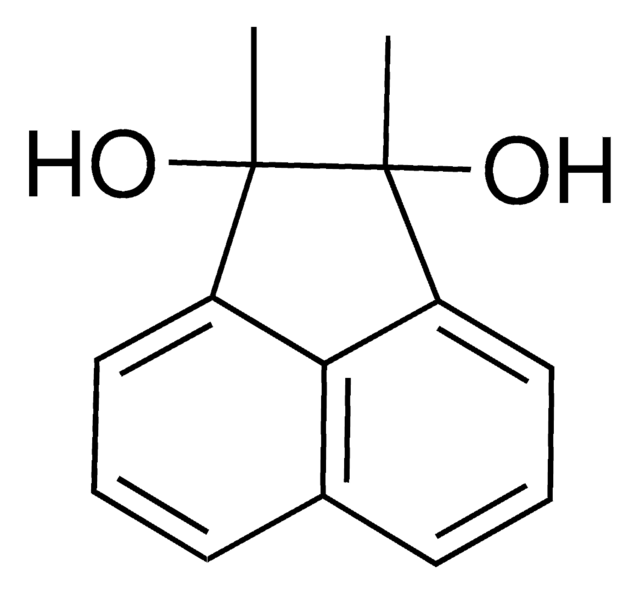SML1314
SAG dihydrochloride
≥98% (HPLC), lyophilized solid, smoothened (Smo) agonist
Synonym(s):
3-Chloro-N-[trans-4-(methylamino)cyclohexyl]-N-[[3-(4-pyridinyl)phenyl]methyl]-benzo[b]thiophene-2-carboxamide dihydrochloride, Smoothened Agonist
About This Item
Recommended Products
product name
SAG dihydrochloride, ≥98% (HPLC)
Quality Level
Assay
≥98% (HPLC)
form
lyophilized solid
storage condition
desiccated
color
white to beige
solubility
H2O: 20 mg/mL, clear
storage temp.
−20°C
SMILES string
O=C(C1=C(Cl)C2=C(C=CC=C2)S1)N([C@@]3([H])CC[C@@](NC)([H])CC3)CC4=CC(C5=CC=NC=C5)=CC=C4
InChI
1S/C28H28ClN3OS/c1-30-22-9-11-23(12-10-22)32(28(33)27-26(29)24-7-2-3-8-25(24)34-27)18-19-5-4-6-21(17-19)20-13-15-31-16-14-20/h2-8,13-17,22-23,30H,9-12,18H2,1H3/t22-,23-
InChI key
VFSUUTYAEQOIMW-YHBQERECSA-N
Application
- to study its effects on mouse hippocampal cells
- to determine its effects on the mitochondrial network in zebrafish embryo
- to study its effects on murine embryonic fibroblasts
Biochem/physiol Actions
Signal Word
Danger
Hazard Statements
Precautionary Statements
Hazard Classifications
Acute Tox. 3 Oral - Aquatic Chronic 4
Storage Class Code
6.1C - Combustible acute toxic Cat.3 / toxic compounds or compounds which causing chronic effects
WGK
WGK 3
Flash Point(F)
Not applicable
Flash Point(C)
Not applicable
Certificates of Analysis (COA)
Search for Certificates of Analysis (COA) by entering the products Lot/Batch Number. Lot and Batch Numbers can be found on a product’s label following the words ‘Lot’ or ‘Batch’.
Already Own This Product?
Find documentation for the products that you have recently purchased in the Document Library.
Customers Also Viewed
Our team of scientists has experience in all areas of research including Life Science, Material Science, Chemical Synthesis, Chromatography, Analytical and many others.
Contact Technical Service














